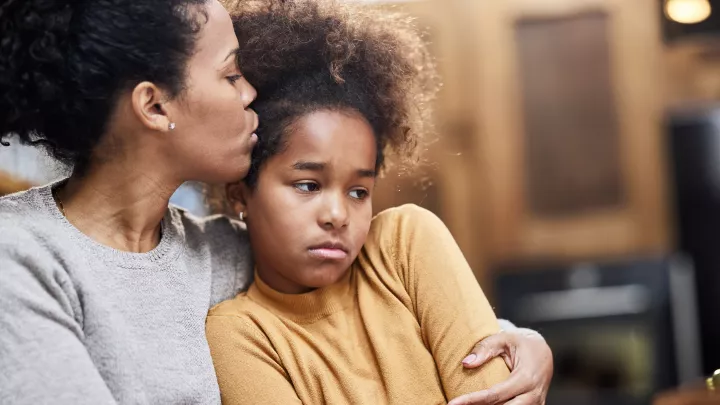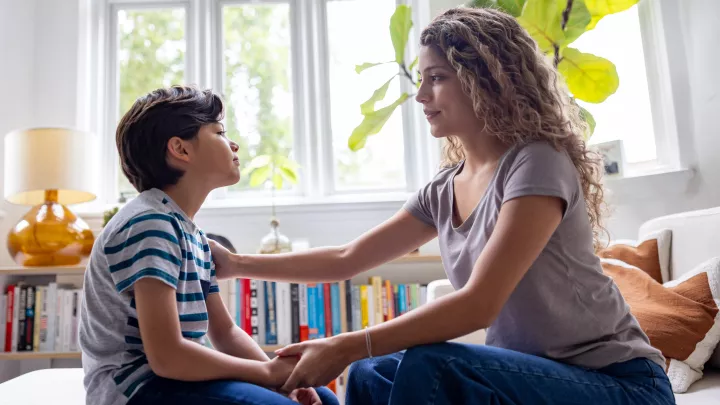
Preparing Your Family for a Disaster
Key takeaways:
- Families should plan ahead by preparing a ‘go-bag’ for each child and designating trusted emergency contacts in the event of a disaster.
- It is important to reassure children of their safety during and after a disaster, and to be mindful of how you’re discussing the disaster in front of your children.
- Following a disaster, focus on remaining calm in front of your children, listening to them, and allowing them to express themselves.
Could your family handle an unexpected earthquake tomorrow? What if a wildfire forced you to evacuate with only minutes to spare? How would you ensure your children’s safety and well-being in such chaos?
Natural disasters strike with little warning, making it vital for families to prepare ahead of time—especially when kids are involved.
Begin by preparing needed supplies
“You can start by creating a family disaster kit together—it’s a practical step that doubles as a teaching moment,” says Bradley Goldberg, MD, Medical Director for both Emergency Management and the Pediatric Disaster Resource and Training Center in Emergency and Transport Medicine at Children’s Hospital Los Angeles (CHLA).

The call to prepare remains critical. “Disasters test us, but they also reveal our strength,” Dr. Goldberg says. “With a solid plan and open communication, families can not only survive but emerge stronger.”
Here are some key tips Dr. Goldberg recommends for families:
- Assemble a ‘go-bag’ for each child: “Include essentials like water, snacks, a change of clothes, and a small comfort item, but let your kids help pack it,” Dr. Goldberg suggests. “Ownership of their bag gives them a sense of control and responsibility.” Families can utilize CHLA’s Disaster Preparedness Activities for Your Family, a helpful document which includes instructions on packing a go-bag.
- Designate a family communication hub: “Phone lines may fail and you may not be able to reach each other,” Dr. Goldberg explains. “Consider identifying a trusted out-of-area relative or friend as your central contact. Teach kids how to memorize that number—it could be a lifeline if you’re separated.”
- Prepare for medical needs: “If your child has medications or special health requirements, ensure a 7-day supply of any needed materials is ready and accessible,” Dr. Goldberg emphasizes. “Disasters don’t wait for pharmacies to reopen.”
“Kids thrive on predictability, even in chaos,” Dr. Goldberg adds. “Run through scenarios—like what to do if you’re separated or if the power’s out for days—so they’re not caught off guard. Make it a game if they’re young; it reduces fear and builds muscle memory.”
Communicate with your child
The hours, days and weeks after a disaster can be a very challenging time for a child to process simple questions like: What happened? Why did this happen? What if it happens again?
Children are physically and psychologically more vulnerable than adults. That’s why it’s important to communicate to children on their level, and not treat them like ‘little adults.’
“The first thing is to reassure their safety,” says Stephanie Marcy, PhD, a licensed psychologist in General Pediatrics at CHLA. “Stick with a routine, let them know that they are going to be okay, and try to provide some familiar object from the house so that if you have to leave they can take it with them to provide a sense of familiarity.”

If a family’s home is not inhabitable following a disaster, establishing a sense of continuity and unity is key. “It’s important that kids know you’re there with them and you’re all going to be okay because you’re together,” Dr. Marcy says. “Kids can survive a lot if they are with a familiar person they trust.”
And while media coverage can inform people of hazards and conditions following a disaster, this information can be scary for kids.
“The images that a grownup is viewing and has context to understand, a little child or even a school-age child may not,” Dr. Marcy says. “They may be seeing images of people in different states of distress and it could be very scary to them. Be very careful what you’re talking about and what you’re showing your children, but stay informed so you can make good decisions as a parent. Just communicate with them and let them know what’s happening so that there are as few surprises as possible as you go along.”
After a disaster
The 'after' is just as important as the 'before' and 'during' for you and your child.
- Listen and talk
- Clarify any misunderstandings.
- Provide as much factual information as you can, given the child’s age.
- Be calm and supportive
- Children can often mimic adult reactions so, staying calm will benefit both them and you.
- Don't criticize regressive behavior. Some children may lose skills they previously had, such as using the toilet.
- Let children express themselves
- Allow your child to express themselves by telling a story or drawing a picture.
- Try to re-establish your regular routine
“Limit the noise and focus on recovery,” Dr. Goldberg advises. “After a disaster, kids don’t need endless updates—they need stability. Answer their questions honestly but simply, and watch for signs of stress, like changes in sleep or behavior. That’s your cue to step in with extra support or professional help if needed.”


